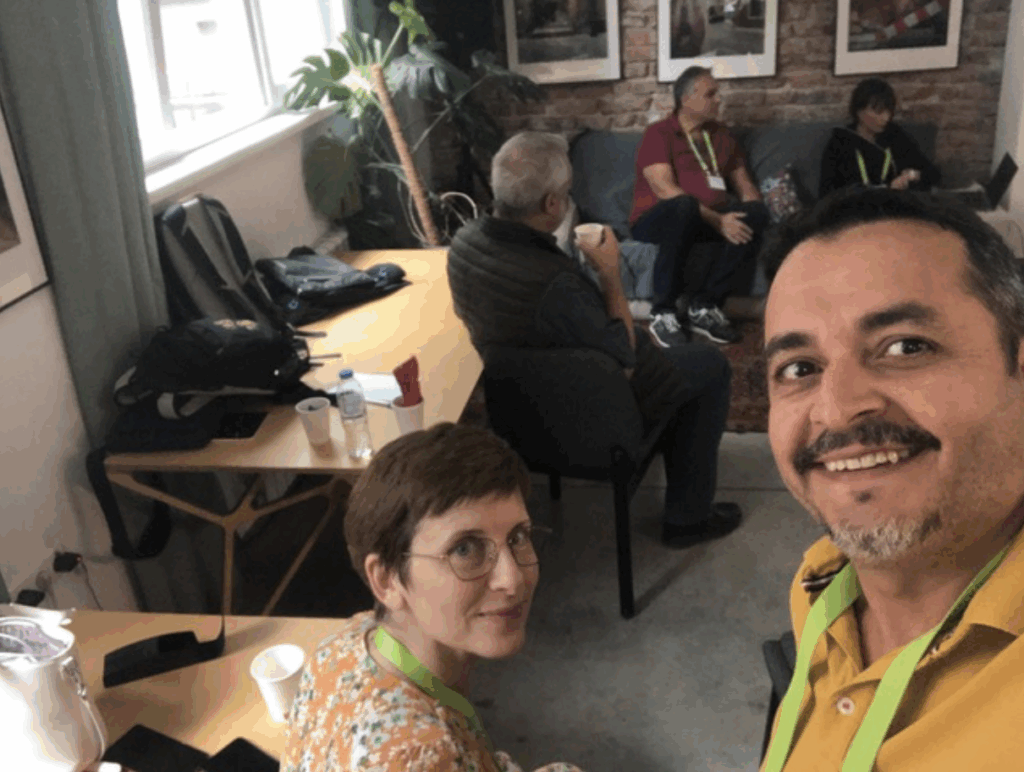By Dr. Mirela Tase and Dr. Murat Sarginci
Virtual Mobility Details
Title: Policy Brief Virtual Mobility Grant: “Sustainable Development in Mountain
Areas” in Higher Education Institutions in EU Candidate Countries
Start and end date: 1/6/2025 to 30/6/2025 (Türkiye and Albania, virtual)
Our Virtual Mobility project explored sustainable development in mountain areas across Türkiye and Albania, highlighting the vital role of higher education institutions in addressing global challenges like climate change and biodiversity loss. Through student engagement, collaborative research, and targeted policy recommendations, collaborative research, and targeted policy recommendations, we aim to raise awareness and inspire action for sustainable practices in EU candidate countries’ mountain regions.
This policy brief highlights the critical importance of sustainable development in mountain areas within EU candidate countries’ higher education institutions (HEIs). Despite their ecological and cultural significance, mountain regions remain under-researched, particularly in HEIs. Addressing challenges such as climate change, biodiversity loss, and migration requires integrating science, policy, and international cooperation. Mountain areas and tourism play a crucial role in this aspect, yet it is often discussed in fragmented ways.
We provide recommendations for enhancing universities’ roles in sustainable development in Türkiye and Albania. Our Virtual Mobility project enabled collaboration between two experts, fostering stronger connections among COST Action members and laying the foundation for future joint work. These insights can guide further analysis and inspire similar initiatives among other COST participants.
Meet the Experts
Dr. Mirela Tase, Head of the Department of Tourism and WG1 Leader, led the drafting of the policy brief outline, conducted desk research on Türkiye’s and Albania’s policies, explored global frameworks, and reviewed literature on mountain areas and sustainability.
Dr. Murat Sargıncı, Assistant Professor at Düzce University’s Faculty of Forestry and Co-Leader of WG1, prepared the questionnaire and graphics and handled data interpretation. Together, we gathered input from students through surveys, lectures, and online discussions at Alexander Moisiu University in Durrës, Albania, and Düzce University in Türkiye.
Event Highlights
Between June 1–30, 2025, four key meetings and numerous exchanges took place:
- Preparatory Meeting (May 21, 2025): We introduced the subject, defined roles, brainstormed key elements for the policy brief, and set up a shared Google Drive with relevant resources.
- Kick-Off Meeting (June 1, 2025): Over 50 students from both countries joined online discussions on literature collection strategies, desk research methods, and questionnaire feedback. Students shared their involvement in curricular and extracurricular activities related to sustainable development in mountain areas and the SDGs.

3. Draft Preparation (June 15, 2025): We discussed strategies for gathering literature through student webinars and refined the draft policy brief.
4. Finalisation (June 30, 2025): We presented the final policy brief, key recommendations, and findings during an online meeting with students who had participated in the questionnaires. They voiced concerns about implementing the brief’s recommendations in their countries.
Our Experience
This was our first Virtual Mobility experience. It was fantastic because, in the two online meetings we organised with students, we collected several ideas and reflected on our policy brief. Students were actively engaged in these discussions, sharing their insights.
Participants were enrolled in bachelor’s programmes, as well as master’s and PhD level programmes. The results of the survey can be reached from our survey link on Google Forms here: https://docs.google.com/forms/d/18QtETKvZUPbkw3afVQXt6t_5 PwuEw73PHazsAV6oFw/edit#responses.
One challenge we faced was that a few students could not submit their responses in English; Murat translated their contributions. Many students expressed enthusiasm for exchange programmes with EU countries but cited limited foreign language skills as a barrier. When asked about their views on the survey topic, some voiced concerns over the planet’s future, emphasizing that while resources are limited, there’s still hope if we act now.
Networking and Collaboration
We introduced students to the Fairway platform, encouraging them to participate in its activities to enhance their research skills. Additionally, we invited them to our webinar series, offering a platform to share their experiences and research findings.
Looking Ahead
The policy brief highlights the need for support and the role of stakeholders, including governments and policymakers in candidate countries, as well as the importance of strengthened international collaboration and knowledge exchange in this field. It is expected to increase awareness surrounding the importance of integrating sustainable development for marginalised mountainous areas in HEIs, as most of them are unaware of the Sustainable Development Goals (SDGs). The recommendations will contribute to policy changes to enhance the role of universities in addressing global sustainability challenges.
Our policy paper underscores the importance of enhancing policies to engage HEIs in sustainable development efforts for mountain areas in EU candidate countries. Science has a key role in promoting regional development, innovation, and collaboration among universities, research institutions, industry, and governments. Such partnerships can reduce disparities among regions, foster economic growth, and equip countries to tackle pressing global challenges.
However, there remains low awareness of sustainability issues in mountain areas. Promoting exchange programs and activities related to the SDGs can increase interest, participation, and understanding of these critical topics.
Recommendations
Some resulting recommendations include:
- Improve Access to Education: Many young people lack opportunities to study their preferred fields due to high costs. Governments should fund education in critical fields like medicine and engineering, potentially requiring graduates to work in their home regions to address skill shortages.
- Foster Collaboration: This Virtual Mobility strengthened cooperation among COST participants and can serve as a model for future collaborations addressing national sustainability challenges.
- Promote Knowledge Sharing: Sharing best practices among scientists, policymakers, and communities will drive effective knowledge exchange and innovative solutions.
The policy brief will be shared with colleagues and on social media to reach a wider audience and inspire further research and action, so stay tuned!
Header image credit to Luigi Farrauto (Getty Images)


